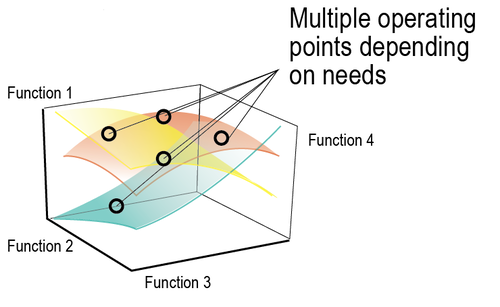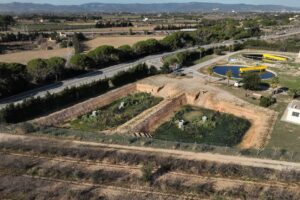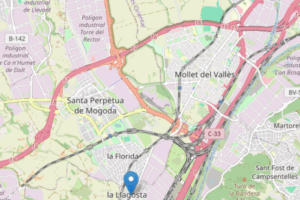
COVID-19 · The UPC collaborates with the catalan Ministry of Health on requirements to make reusable healthcare masks
March 1, 2020
COVID-19 · Mathematical models and data management in public health emergencies
March 1, 2020CDIF UPC is participating in the European project XFLEX HYDRO, whose aim is to improve the flexibility of the electric system based on energy generated in hydroelectric power stations.

Due to the European Union’s decarbonisation process, there is mass integration of renewable energy sources and disconnection of standard units that are greenhouse gas emitters. These changes dramatically influence the provision of balance in the grid and challenge its operations and security. It is vital to provide reliable solutions with more flexibility services. The project arose after the publication of the Emissions Gap Report by the United Nations (UN). The document examines ways to reduce CO2 emissions globally and highlights flexibility of the electric system as a key factor to incorporate a higher proportion of variable renewable energy in the supply.
Hydroelectric power plants (HPP) already significantly support the flexibility of the electric power system (EPS) in terms of their regulation capability, frequency control, fast start/stop, fast generating to pumping modes transition, high ramping rate and inertia emulation, among other factors. XFLEX aims to demonstrate innovative methodologies that can be applied to these power plants, such as variable speed turbines, hydraulic short-circuits for turbine pumps, battery-turbine hybrid systems, advanced monitoring and digitalisation. The methodology will be drawn from the results of implementing these technology solutions in seven European hydroelectric plants that serve as an example. The innovative solutions also point to an optimised maintenance plan to reduce downtime and increase plant availability.

The final aim of the XFLEX HYDRO project is to increase hydroelectric power in terms of power plant efficiency, availability of machinery and the provision of flexibility services for the electric energy system (EES). As a result, it will be possible to incorporate a higher proportion of variable renewable energy (wind and solar).
XFLEX will outline a road map for the implementation of its solutions in all European hydroelectric power plants. A strategic dissemination plan will be established to promote deployment of the demonstrated solutions among interested parties, the scientific community and the general public and to provide more support through communication in workshops, conferences, scientific journals, newspapers and social networks.
The project will conclude in 2023 with the delivery of a road map with recommendations for government and industry. The road map will help to meet the target of 32% of energy from renewable sources in 2030.
The XFLEX HYDRO project kick-off meeting was held in December 2019 in Madrid. The project has a budget of 18 million euros and is jointly funded by the European Union programme Horizon 2020, which is providing 15.1 million euros.
XFLEX HYDRO is coordinated by the École Polytechnique Fédérale de Lausanne (Switzerland), with the participation of 18 partners.
Related Projects
- The company Trace ID and the group Twin Investors, in collaboration with the Textile Technology research group (TECTEX), which is part of the Institute of Textile Research and Industrial Cooperation of Terrassa (INTEXTER) at the Universitat Politècnica de Catalunya - BarcelonaTech (UPC), are developing electronic devices to identify, monitor, and study the traceability of the products in which they are embedded.
- The Hydrogeology Group (GHS) at the Universitat Politècnica de Catalunya - BarcelonaTech (UPC) is participating in the LIFE REMAR project to develop an innovative and sustainable solution for the reuse of treated wastewater through infiltration, with the aim of increasing the availability of freshwater resources and improving the state of ecosystems.
- A team from the Environment Centre Laboratory (LCMA) of the Universitat Politècnica de Catalunya - BarcelonaTech (UPC) is taking part in a study commissioned by the city councils of la Llagosta, Mollet and Santa Perpètua (in Vallès Occidental), with the main objective of identifying the impact of industrial plants on the generation of unpleasant odours and continuously monitoring air quality in these municipalities.
- A multidisciplinary team of researchers from the Research Group in Smart and Sustainable Resources and Industries (RIIS), the Sustainable Mining Research Group (GREMS), and the Construction Materials and Roads (MATCAR) group at the Universitat Politècnica de Catalunya – BarcelonaTech (UPC) is leading the VALORFIN project. The aim is to develop a technological solution for the valorisation of the fine fraction of construction and demolition waste (CDW), transforming it into new low-CO₂-emission cementitious materials, while also reducing the presence of hazardous materials in this waste.




